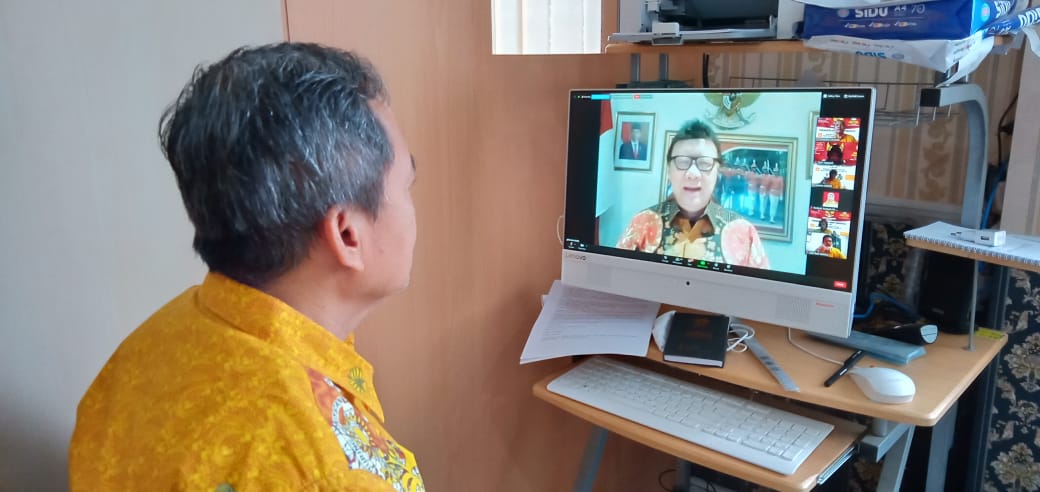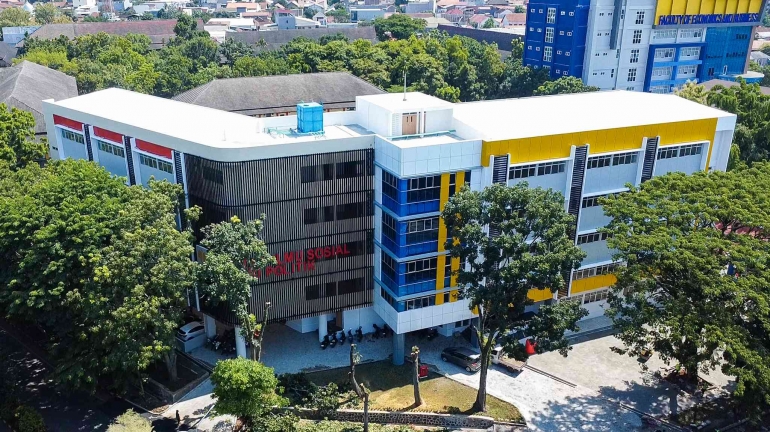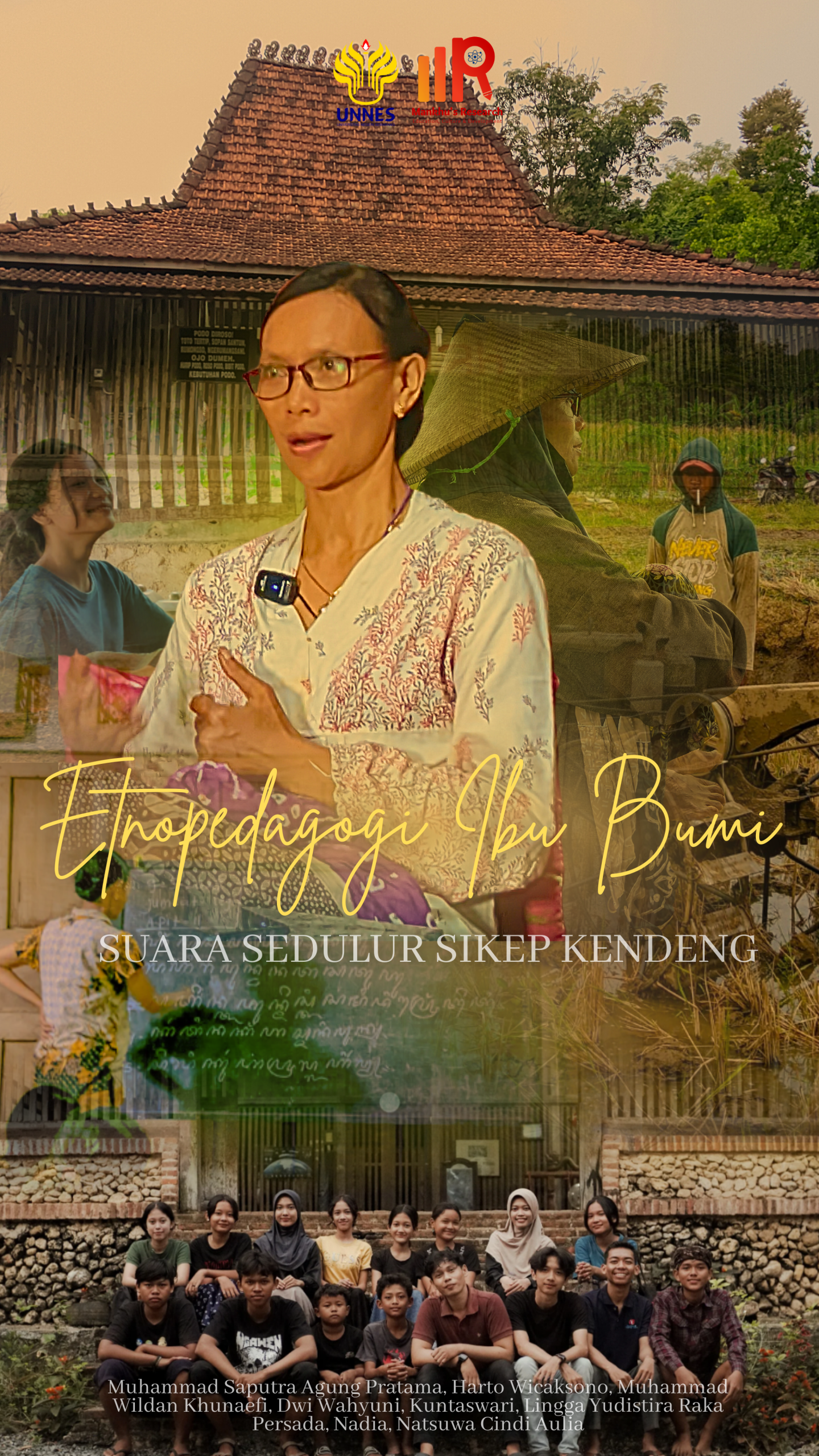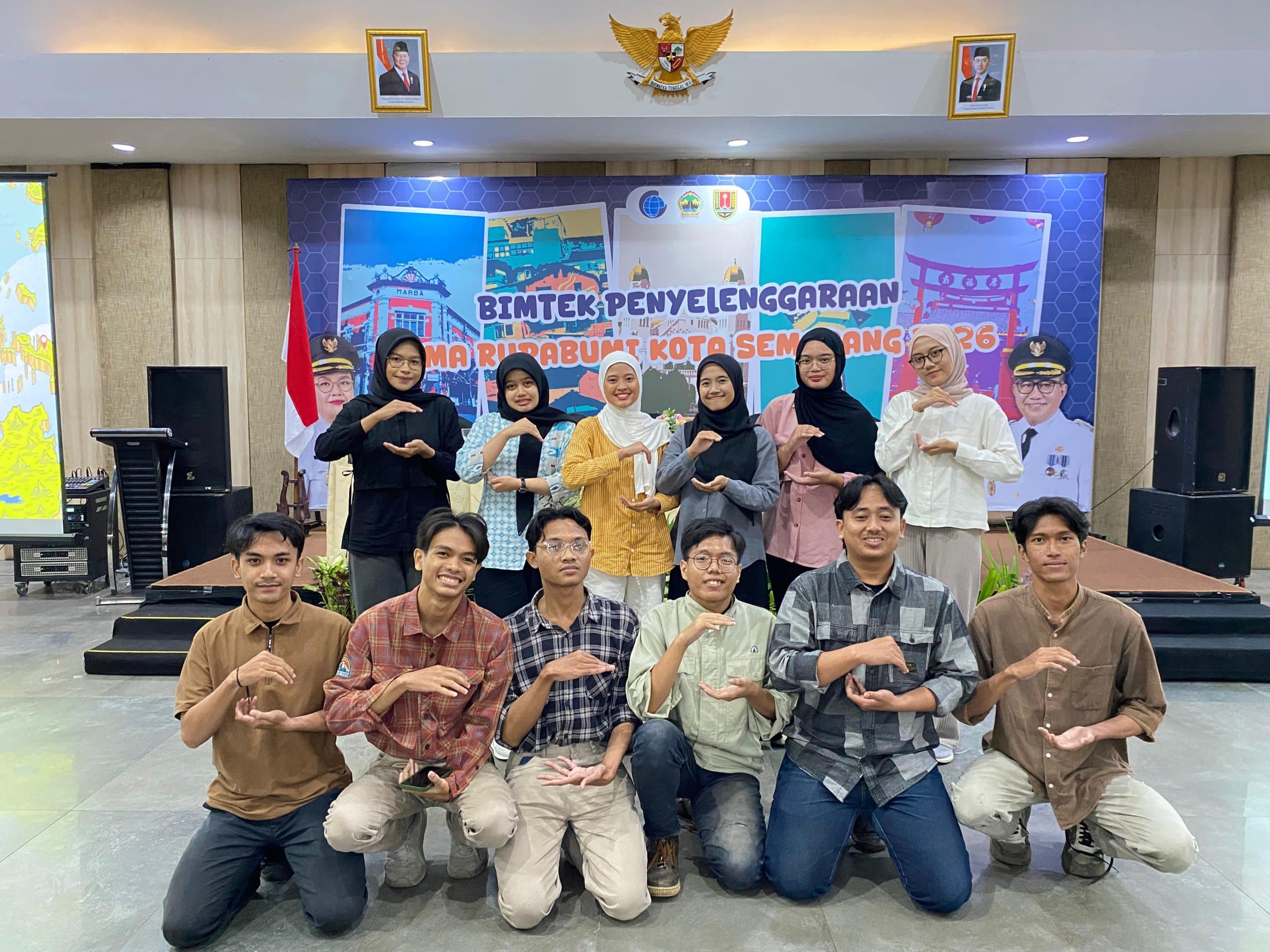Peringatan Hari Lahir Pancasila tahun ini berbeda nuansa dengan tahun-tahun sebelumnya. Universitas Negeri Semarang memeringati momentum bersejarah itu dengan menyelenggarakan Web Seminar (Webinar) Nasional pada hari Selasa (2/6) secara dalam jaringan (daring).
Kegiatan bertajuk “Aktualisasi Nilai-Nilai Pancasila dalam Menghadapi Pandemi Covid-19” tersebut diselenggarakan oleh Fakultas Ilmu Sosial (FIS) UNNES dengan menghadirkan narasumber utama Menteri Pendayagunaan Aparatur Negara dan Reformasi Birokrasi Indonesia Tjahjo Kumolo, S.H. Bergabung sebagai narasumber dalam kegiatan ini juga adalah Rektor UNNES Prof. Dr. Fathur Rokhman, M.Hum.
Hadir pula secara virtual narasumber lainnya yakni Prof. Dr. FX. Adji Samekto, S.H., M.Hum. (Deputi Bidang Pengkajian dan Materi Badan Pembinaan Ideologi Pancasila/BPIP), dr. Yulianto Prabowo, M.Kes. (Kepala Dinas Kesehatan Provinsi Jawa Tengah) dan Dr. Suprayogi, M.Pd. (Ketua Pusat Pengkajian Pancasila dan Karakter Bangsa/P3KB UNNES).
Unnes sebagai Benteng Pancasila
Webinar ini dipandu moderator Prof. Dr. Wasino, M.Hum. (Guru Besar Sejarah FIS UNNES). Dekan FIS UNNES Dr. Moh. Solehatul Mustofa, M.A. dalam sambutan pengantarnya menyampaikan kegiatan ini diikuti sebanyak 1.000 peserta yang berasal dari berbagai penjuru wilayah Indonesia. “UNNES berkomitmen penuh dalam membumikan nilai-nilai Pancasila, meskipun di tengah pandemi Covid-19 seperti sekarang”, tegasnya.
Rektor UNNES Prof. Dr. Fathur Rokhman, M.Hum. dalam paparannya mengungkapkan UNNES merupakan benteng Pancasila yang telah melakukan upaya integratif melalui impelementasi Tridarma Perguruan Tinggi. Pancasila adalah inpirasi utama UNNES dalam mengembangan visi lembaga sebagai Universitas Berwawasan Konservasi dan Bereputasi Internasional.
Pancasila adalah landasan utama dalam membangun UNNES sebagai Rumah Ilmu. Terlebih di masa pandemi Covid-19 seperti sekarang, nilai-nilai Pancasila diimplementasikan melalui karakter kepedulian sosial. “Kehilangan kepedulian sosial adalah pertanda hilangnya ruh keilmuan seseorang”, tutur profoser bidang sosiolinguistik tersebut.
Strategi Implementasi Pancasila oleh Negara di Masa Pandemi COVID-19
Narasumber utama Menteri PANRB Republik Indonesia Tjahjo Kumolo, S.H. memaparkan hal-hal penting kepada seluruh peserta kegiatan webinar ini. Menurutnya, negara sangat serius dalam merawat ideologi Pancasila terlebih di masa tanggap darurat Covid-19. Perguruan tinggi harus mengambil peran dalam pembinaan ideologi Pancasila. Dalam hal ini Menteri PANRB menilai bahwa UNNES konsisten dalam membumikan nilai-nilai Pancasila melalui jalur pendidikan.
Masih menurut Tjahjo Kumolo, S.H., aktualisasi nilai-nilai Pancasila masih konsisten diterapkan dalam masa pandemic Covid-19. Menurutnya, terdapat tiga nilai aktualisasi Pancasila yang tampak jelas terimplementasikan: Pertama nilai persatuan, ditandai adanya kolaborasi solid antara pemerintah dengan masyarakat; Kedua nilai kemanusiaan, ditandai adanya gerakan sosial masyarakat tanpa komando dalam penangangan pandemic Covid-19.
Ketiga nilai keadilan sosial, yaitu dengan adanya upaya pemerintah untuk senantiasa melayani rakyat dengan melibatkan berbagai pihak. “Kita adalah bangsa yang tangguh. Maka dari itu kita harus tetap optimis. Indonesia adalah bangsa Pemenang!”, ungkap menteri yang banyak menghabiskan masa pendidikan formalnya di Kota Semarang tersebut.
Pandangan Para Pakar
Narasumber Prof. Dr. FX. Adji Samekto, S.H., M.Hum. menegaskan pentingnya menjaga ketahanan pangan dalam masa pandemic Covid-19 ini. Kedaulatan pangan haruslah diperjuangkan di masa saat ini untuk mengantisipasi segala kemungkinan buruk yang bisa saja terjadi.
Menurutnya, membangun ketahanan pangan adalah bentuk konkret mewujudkan keadilan sosial sebagai salah satu nilai vital dalam ideologi Pancasila. “Budaya gotong royong adalah upaya strategis untuk membangun kedaulatan pangan”, pungkasnya.
Sementara itu dr. Yulianto Prabowo, M.Kes. menyoroti pentingnya strategi berbasis kearifan lokal berwawasan kesehatan dalam penanganan pandemic Covid-19. Menurutnya, Covid-19 harus ditangani melalui gerakan gotong royong dan pemberdayaan masyarakat secara sistematis, terstruktur dan menyeluruh.
“Jawa Tengah menerapkan strategi budaya ‘Jogo Tonggo’ untuk memutus mata rantai penyebaran Covid-19”, tuturnya. Dalam sistem ‘Jogo Tonggo’, masyarakat haruslah peduli terhadap kesehatan warga sekitar, kondisi lingkungan, kondusivitas ekonomi serta kekuatan kearifan lokal. “Perlu adanya harmonisasi antar pihak yaitu masyarakat, pemerintah, dunia usaha, perguruan tinggi serta unsur media”, tambahnya.
Tampil sebagai narasumber pamungkas Ketua P3KB UNNES Dr. Suprayogi, M.Pd. Dosen senior Mata Kuliah Pendidikan Pancasila tersebut menekankan sebagai dasar negara dan pandangan hidup bangsa, Ideologi Pancasila tidak perlu dipertanyakan lagi keberadaannya. Sebagai pandangan hidup, nilai-nilai Pancasila sudah ada sejak jauh sebelum negara Indonesia ada.
Terdapat hubungan sebab akibat antara Pancasila dengan NKRI. Jika Pancasila kuat, kokoh, maka NKRI juga ikut kuat dan kokoh pula. Menurutnya, Pancasila harus ada sampai kapanpun dan dalam kondisi apapun mengiringi eksistensi NKRI. “Mengubah Pancasila sama dengan membubarkan NKRI”, tegasnya.
Kegiatan webinar berlangsung lancar meskipun tidak dihadiri peserta maupun narasumber secara langsung. Hal itu adalah upaya nyata UNNES melalui Fakultas Ilmu Sosial menyongsong era “New Normal”/Kenormalan Baru di tengah belum terputusnya rantai penyebaran Covid-19 di Indonesia.
(KA)




